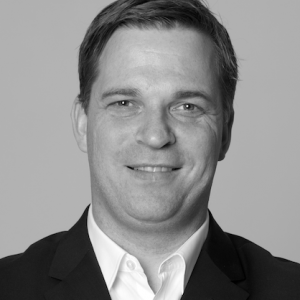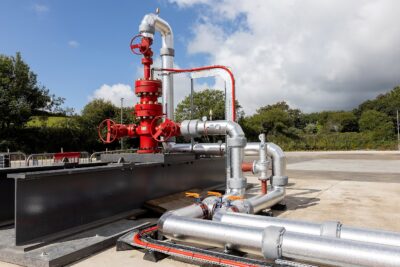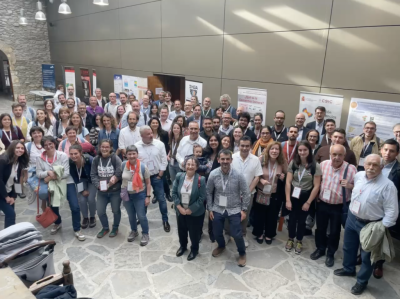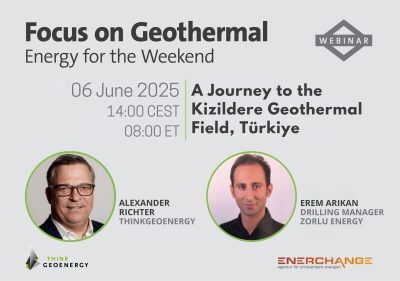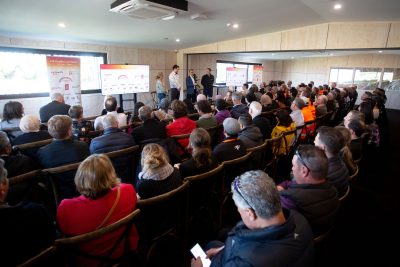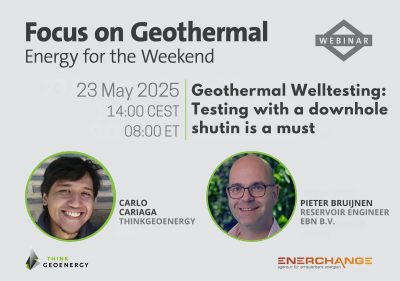WGC2020: Abstracts deadline approaching – Interview with Prof. Roland Horne
With the deadline of the Call for Abstracts for the World Geothermal Congress 2020 in Reykjavik/ Iceland approaching fast, we talked to Prof. Roland Horne on insights on the approach and process for the Call of Abstract and background.
The World Geothermal Congress of the International Geothermal Association (IGA) is the largest global gathering of the geothermal energy community and has been taking place every 5 years, but will change to a 3-year frequency after the event in 2020.
The deadline of the Call for Abstracts for the World Geothermal Congress 2020 in Reykjavik/ Iceland approaching fast, so make sure not to forget to hand in your abstracts before January 31, 2019.
In this context, we wanted to learn a bit more on the background of the process and the expectations from the Call of Abstract. So we connected with Prof. Roland N. Horne, the Thomas Davies Barrow Professor of Earth Sciences at Stanford University, and Director of the Stanford Geothermal Program, who is the Chair of the Technical Programme Committee of WGC2020. He has also co-chaired the Technical Programme for the 2005, 2010 and 2015 World Geothermal Congresses.
With several geothermal conferences, what makes the World Geothermal Congress special for the geothermal community?
Although many geothermal conferences enjoy some degree of international participation, the unique aspect of WGC is that it is a truly worldwide event in which all regions and groups participate on equal standing. Past WGCs have had registrants from more than 80 countries and regions. The WGC Is a forum where the geothermal community gathers to discuss problems, solutions and experiences that are part of the geothermal energy world.
How important are these technical sessions of the WGC for the geothermal energy community?
Geothermal resources are widespread in the world, and yet often have particular characteristics based on the regional geology, the local regulatory practices and the structure of the regional energy portfolio. Therefore, members of the worldwide geothermal community are often facing aspects of resource development that are not universal ‘text book’ issues. The WGC provides a forum for geothermal agencies and people to come together to discuss their own experiences, which may often be useful to others who face similar issues – a problem solved in Russia may suggest a solution for Costa Rica…
People have asked why the deadline is so early with the event taking place in 2020, why is the deadline so early?
As the largest Technical Programme of any geothermal conference, the WGC handles a massive number of papers (1,800 abstracts in 2015). In order to preserve the technical quality and readability of the papers, all of them are reviewed by an international review committee (with more than 150 members) and are edited for English (more than 50% of the papers are edited by a team of 30 editors to improve their English). All of this takes time, hence the early deadline. Actually, the written paper deadline for WGC2020 has been moved later by 2 months compared to 2015, so that the deadline is later and the authors have more time to make their papers current. This will make our reviewing and editing jobs a bit more challenging – but we are confident that we can do it.
What can you tell us about the process of the abstract submission and evaluation for admission?
Each topic has a technical review committee who read the abstracts and check for technical quality and suitability for WGC. Abstracts that are not about geothermal energy, or which are overtly commercial in promoting a company’s products will be rejected (the WGC does provide a forum for companies to promote their products, but it is in the Exhibition not in the Technical Programme). The committee also considers whether the abstract might fit the programme better in a different topic. If authors have submitted multiple abstracts, they may be asked to consolidate them into a smaller number of papers (otherwise, they wouldn’t fit into the programme). Accepted abstracts will be informed by the end of April 2019. If accepted, full papers will be due by July 30, 2019. The full papers will then be reviewed, and the authors may be asked to revise their papers. Completed, revised papers will be reviewed again and then sent to the English editors if required. Once all the revisions and editing are completed, final papers will be assembled into the final proceedings in the early months of 2020.
The overall themes for the abstracts is rather extensive. Have you seen a certain trend in what are key topics to see more interest in submission?
Previous WGCs have shown solid participation in ‘core’ subjects of the geosciences and engineering, but each congress has also shown trends in new subjects and ideas being explored. In 2015 we saw a widely expanded consideration of Enhanced Geothermal Systems (EGS) for example. In 2020 we are expecting an expansion in submissions in the area of Big Data, and also on District Heating – both topics are of current but also growing interest. There will no doubt be other new areas that show up in the submissions too.
What topics would you personally be interested to see more covered by papers in the upcoming WGC2020?
The technical programme is often heavily, well, technical. However there are many less technical topics in the list, such as social aspects and regulatory environment. One of the most fascinating papers I ever read during previous congresses was a paper about using geothermal heat in a rose-growing greenhouse high in the mountains so that the humidity was low and the roses did not grow mold spots as they might at normal elevations in a humid climate.
What makes the location of Iceland for the upcoming WGC special and how could the event be used as a general showcase for what geothermal has to offer in the global energy transition?
Iceland is of course the nation with the world’s largest contribution of geothermal energy in its national primary energy mix, and which has hundreds of years of experience in using geothermal heat for the benefit of its citizens. I’m certain that WGC participants will be energized not only by the congress itself, but also by the opportunity to visit Iceland.
We thank Prof. Horne for his insights.








